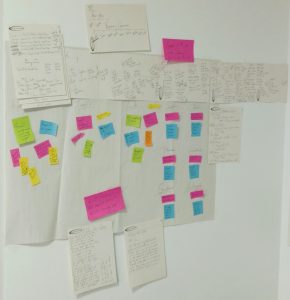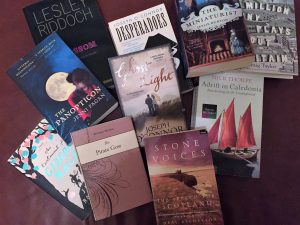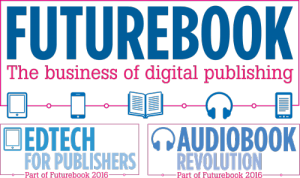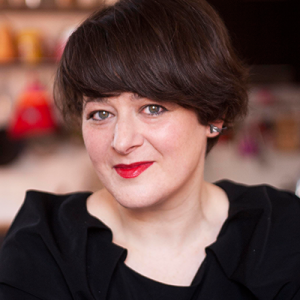For those who don’t know what NaNoWriMo means, it is the National Novel Writing Month which takes place every November, in which people all over the world decide to write 50,000 words. During my undergrad, I would work on school-work during November trying to retain some semblance of motivation as the semester dragged slowly to a close. My roommate, on the other hand, would begin to write a novel. For four years, every November, she would write a novel; and I would sit on the other side of the room resisting the urge to slam my head into my desk and begging the Finals Gods to grant me one more moment of academic inspiration. My roommate, who for the purposes of this post shall be called Calliope, managed to balance four classes, hockey, her job, various extra-curricular activities, and a novel. She is what NaNoWriMo participators call a pantser, meaning she starts writing without thought or plan, she writes as inspiration comes and a novel is the end result. I hope you can feel my disdain for this woman, she’s my best friend and I love her, but in this month, I loathe her.
So, I talked to Calliope about her process and why she does it. It seems to be that writing and not looking back is the main task. Editing while writing is a no-no, so you should probably just turn off the function in Word that tells you that everything that you do is wrong. Two of my current grad school roommates decided to participate this year, one a native Scot (Caitlin) and the other an Italian (Marta).

Storyboarding. Started out as a post-it. It has grown.
Marta decided to write her NaNoWriMo project in English as she thought it would be a good way to practice her English. It was her first NaNoWriMo experience and she got to 3000 words while balancing a very full class schedule. She decided to write a dystopian fantasy and had drafted a plot-line as well as some character descriptions. She put some thought into the world she was building and set forth to write whenever there was time and whenever inspiration struck. Only, time is very limited during the month of November in a grad program, and inspiration is a cruel and flighty mistress. All in all, Marta said that she enjoyed the experience and would do it again, only next time there would be daily word count goal and hopefully less stress.
It was also Caitlin’s first time writing in NaNoWriMo. Caitlin started the process with an outline, characters, and had written 10,000 words prior to beginning NaNo, so she didn’t start from scratch. To clarify, those 10,000 were not included in her final word count which was 32,000; she also counted an additional 5,000 words for school assignments. Caitlin initially set aside an hour or two a day once she had finished with her classwork for that day. As the month continued, she discovered that it was hard to find motivation and began to use the weekends to catch up in her word count. However, by week three, she realized she wouldn’t hit 50,000, but had begun to average 1,000 words a day. Caitlin felt pleased with her progress as she had more at the end than when she had started. She may not have ‘won,’ but she was glad to have taken part in the experience anyway, regardless of the outcome. Similar to Marta, Caitlin said she would do it again, when she wasn’t in grad school and therefore, less likely to be so stressed.
I made the decision to attempt to do NaNoWriMo this year. Why? I have NO IDEA. Because grad school isn’t hard enough? Because I’m apparently both a sadist and a masochist? Because I love a challenge? Because I thought, “This is the perfect time to write the content of my Publishing Project?” All of the above, but mostly the last one. And what did I learn from this experience? It is really hard to write an essay, let alone a novel. I don’t think being an author is in my future. However, I also recognize that authors write over a period of time, not in a rush of 50,000 words in a month. Sure, there are times when your muse visits for longer than an hour and in those gracious periods of time words are written in incredible amounts. Chapters finished, characters killed, plot moved, but then the will to write ceases. My muse likes to visit when I’m busy with other things, and especially when I lack paper. My arms have witnessed a lot of ink this month. Still, I failed horribly at the target word count. Sure, if I counted all the words I wrote for my class essays and my text messages, I probably would be closer to 25,000 words, but still nowhere near 50,000. I honestly only made it to 8,000 in my novel.
I didn’t put aside a set hour every day. I didn’t really take the challenge all that seriously, because once I reached 6,000 words I realised that I had more than enough for my publishing project. The thing is – the story won’t leave my head. I have a wall in my room covered in paper that lays out the book’s timeline, I have character biographies, and a family tree. I have an idea of how this world I’ve built will end. I think the thing that NaNoWriMo helped me discover is that I cannot write a story without plotting ahead of time and that my imagination is nowhere near as dead as I thought.
Overall, I think the main thing that I realized is that books are written by many types of people. The author writes the words and maybe they are good, maybe they have the potential to be good, and maybe they will never see the light of day. We all have a story inside of us, but only some of us set aside the time to put pen to paper and let the words flow outside of our internal monologue. I hope that I continue to write my story in spite of the fact that November has come to an end. I hope that we get a November that proves friendly to writing a novel, a month not filled with due dates and stress, but let’s be honest, stress and due dates don’t stop with school ending. But hey, look at that I’ve written another 1000 words and somehow it came easily. If anything, this experience has taught me that looking at the word count is somehow easier than looking at a page count. Oh, and that it helps to have a good writing playlist (mine was a combination of Florence + the Machine, Sia, Electric Light Orchestra, and Cat Stevens). So, plan ahead, if that’s your thing. Write whatever comes to mind. Just have a bit of fun, and don’t judge the random meanderings your mind takes at 4 am when inspiration strikes and your computer is close enough that you can just roll out of bed, burrito yourself in your duvet, and squint at the blinding screen as the nagging voice in your mind finally makes itself known even though you only have five hours to sleep before class…no, I’m not speaking from personal experience at all.
by Isabella Pioli











